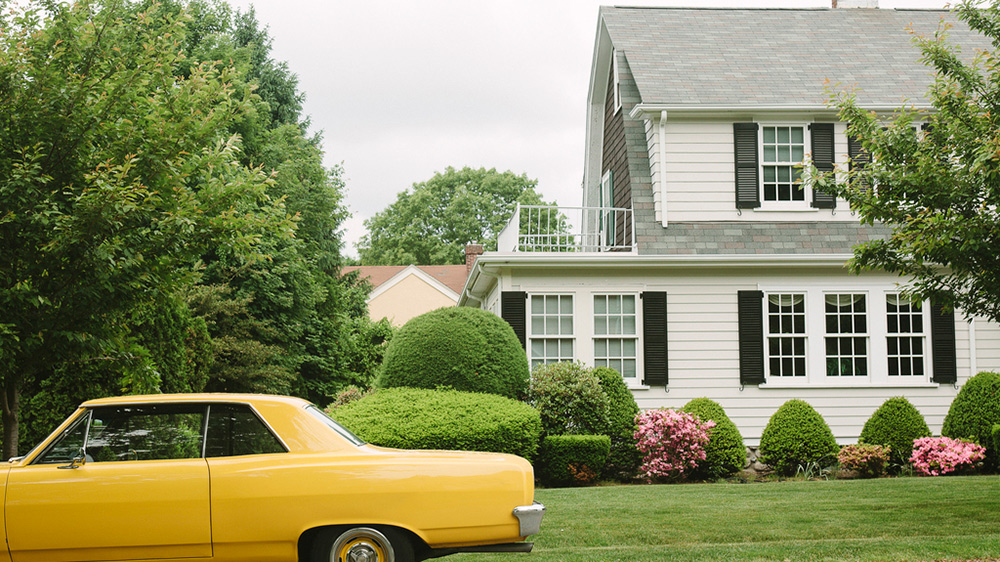
Lucky for you, Coldwell Banker Kappel Gateway property search function has a drive time filter! A very important consideration you should be aware of if you are a commuter.
If you had to choose, would you pick the dream house or the dream commute?
Anyone stuck in traffic can tell you just how important commute time is.
According to the U.S. Census Bureau, nearly 11 million of us drive an hour or more to work each way. In addition, Trulia’s Best and Worst Cities for Commuting, an analysis of American Community Survey data, and a 2015 online survey of more than 2,000 American homeowners, shows that commute times in the 50 biggest U.S. cities have steadily increased since 2009.
This could encourage some homebuyers to consider swapping larger houses and longer commutes for more modest properties closer to work. Others refuse to give up on square footage, a big backyard, and other suburban amenities. But no matter what you’re looking for, your future drive time to work is an important part of the house-hunting puzzle.
How to evaluate your commute before you buy a new house
-
1. Map out the route from home to work
How your commute will affect your day-to-day life is important to know before buying a home. Start by clicking on the commute tab in Trulia Maps to calculate the distance between home and work. Then do a dry run, says Danielle Schlesier, a real estate agent with Coldwell Banker Residential Brokerage in Brookline, MA. Get in the car, hop a bus, or take the train and do the commute both in the morning and the evening, she suggests. Picture yourself commuting every day, and if the answer is Yes, I can manage this, then go for it. If the answer is no, keep looking for a home closer to your office. Use Trulia’s analysis of commuting methods to figure out how your city gets to work.
-
2. Evaluate your work-life balance
Adding a commute can be a big lifestyle change, so consider all the pros and cons involved in that decision, says Jen Birmingham, a real estate agent with Coldwell Banker Residential Brokerage in Petaluma, CA. Think about how you feel when you’re on the road. Would a longer commute put you in a gloomy mood that could outweigh the perk of having a spare bedroom or space for a pool? Ask yourself: How will the added drive time impact your personal life and family time? How do these concessions balance out with the benefits of the move?
And consider alternatives, Birmingham advises. Does your employer offer flexibility in the commute hours? A commute schedule outside of usual high-traffic times can make a huge difference in the hours spent on the road, she says.
-
3. Consider your life stage
Are you single, newly married, raising a growing family, or downsizing? Commuting may not be a deal breaker if you have other priorities. Buyers with families often opt for a larger home in a desirable neighborhood that comes with a longer commute, notes Luisa Mauro, broker/owner at Marathon Real Estate in Austin, TX. Clients with children may live further from their office to be in a specific school district. Typically, the further a house is from the central business district, prices are less for additional square footage, which is desirable for growing families.
Buyers may also want to evaluate how long they plan to stay in their current job versus how long they intend to live in their new home, adds Schlesier. You may change jobs, so you better really love where you live, she says.
-
4. Add up all the costs, not just the financial ones
Buyers may underestimate the true cost of a lengthy commute, notes Jon Jachimowicz, a Ph.D. candidate at Columbia Business School who studies the daily effects of commuting on workers. Longer commutes make people more emotionally exhausted, explains Jachimowicz. If you have to drive into work 300 times per year, versus the 15 barbecues you’re going to have in your yard each year, people overweigh how much joy they’re going to get from those 15 barbecues versus the negative experiences from 300 days of commuting.
While you should definitely figure in commuting costs such as gas, tolls, parking, train tickets (and even things like extra hours of childcare), think about the psychological costs of commuting as well, adds Schlesier. No matter how much you love a house, it may not matter if you don’t have enough free time to enjoy it.
-
5. Seek out alternative routes and travel times
Experiment with different routes and schedules when weighing a new commute, suggests Mauro. Our clients will work out or shop during traffic hours to maximize the time they have between work and driving home, she says. They’re able to get home more quickly by starting their drive home later.
Easy highway access also makes commuting more manageable, adds Birmingham. In a community like Petaluma, living 1 or 2 miles from the freeway can make a 20- to 30-minute difference in a driver’s day, so living near an entrance and exit of a major commuter thoroughfare makes life feel a lot easier, she says.
-
6. Embrace the upside of a longer commute
Commuting can be a positive experience, says Jachimowicz, especially if you use that time effectively. His research shows that even small tweaks in your routine can make you more productive. For example, plan out your workday or practice for a performance review or a challenging conversation with your boss. One interesting thing about commuting is, you’re moving both physically and psychologically from one role to the next, says Jachimowicz. People who transition into their work roles as they’re commuting experience fewer negative consequences.
If you take public transit, adds Schlesier, catch up on work or clear out your overflowing inbox or voicemail. Commuting can also be beneficial if you reclaim it as me time, notes Mauro. Decompress from the workday and separate your professional and personal lives, she says. Listen to podcasts, books on tape, or learn another language.
While these strategies won’t magically cut your travel time in half, they will help you focus on the big picture. Having the opportunity to escape a bustling city and enjoy a more laid-back lifestyle can add a huge quality-of-life boost when somebody becomes a commuter, says Birmingham.
Source: Trulia Blog

 Facebook
Facebook
 X
X
 Pinterest
Pinterest
 Copy Link
Copy Link







